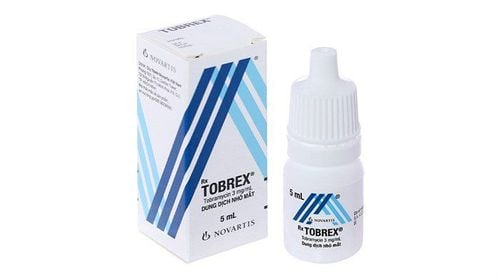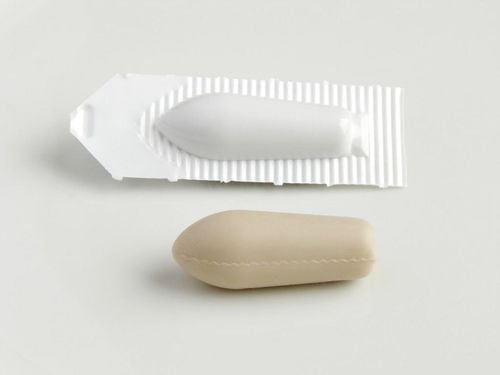1. What is ACC 200? What are its uses?
ACC 200 is formulated as a powder to be dissolved in water and taken orally. The product is manufactured by Lindopharm GmbH, a company based in Germany, and is imported and sold in pharmacies nationwide.
As for its uses, ACC 200 contains 200mg of Acetylcysteine along with sufficient excipients, which allows it to effectively break down mucus in certain respiratory conditions that involve excessive mucus production. The drug works by breaking the disulfide bonds in mucoproteins (components of mucus), thereby reducing its viscosity. This makes it easier to expel mucus from the respiratory tract through coughing, postural drainage, or other mechanical methods.
2. Indications and Contraindications of ACC 200
2.1. Indications:
- ACC 200 is indicated for the treatment of mucus-related disorders (mucoviscidosis, cystic fibrosis), and respiratory conditions with thick mucus such as acute and chronic bronchitis.
- It also supports detoxification in cases of paracetamol overdose, ifosfamide, and doxorubicin toxicity.
- It is used to treat dry eye syndromes like keratoconjunctivitis sicca and Sjogren’s syndrome associated with abnormal mucus secretion.
- It is used for kidney protection during contrast radiographic imaging.
2.2. Contraindications:
- Allergic reactions to Acetylcysteine or any components in the medication.
- Not recommended for children under 2 years old to ensure safety.
- People with active peptic ulcer disease should not use ACC 200.
3. Side Effects of ACC 200
During the use of ACC 200, some rare side effects may occur, including:
- Headache, ear ringing
- Rapid heart rate, sudden drop in blood pressure
- Nausea, vomiting, diarrhea, stomach pain
- Skin rashes, hives, itching, angioedema, fever
Rarely, the following severe reactions may occur:
- Anaphylactic shock, bleeding in some cases
- Difficulty breathing, bronchospasm, indigestion
- Potential dental harm leading to tooth decay.
Before using the medication, it is advisable to inform your doctor about any unwanted side effects experienced.
4. How to Use and Dosage of ACC 200
Since ACC 200 comes in powder form, it should be dissolved in water and taken after meals. Patients with chronic bronchitis and increased mucus production should use ACC 200 for a longer period to effectively prevent and fight infections. Dosage varies depending on the condition being treated:
Mucolytic Treatment:
- Adults and children over 14 years old: 1 packet 2-3 times per day (equivalent to 400-600 mg/day).
- Children aged 6-14: 1 packet 2 times per day (equivalent to 400 mg/day).
- Children aged 2-5: 1/2 packet 2-3 times per day (equivalent to 200-300 mg/day).
Excessive Mucus Production:
- Children over 6: 1 packet 3 times per day (equivalent to 600 mg/day).
- Children aged 2-5: 1 packet 2 times per day (equivalent to 400 mg/day). For children weighing over 30kg, the dosage may go up to 800 mg/day if needed.
5. Drug Interactions of ACC 200
It is important to inform your doctor or pharmacist about any other medications you are taking, as ACC 200 can interact with certain drugs, including:
- Combining ACC 200 with cough medicines can reduce the cough reflex, leading to serious mucus obstruction.
- The Acetylcysteine in ACC 200 may reduce the effectiveness of antibiotics, so it is advised to take antibiotics at least 2 hours apart from ACC 200.
- ACC 200 may enhance the vasodilating effects of nitroglycerin, so caution should be exercised.
- Consuming alcohol while taking ACC 200 may lead to hypoglycemia or hyperglycemia in diabetic patients, so alcohol should be avoided.
6. Precautions When Using ACC 200
To use ACC 200 safely and effectively, consider the following:
- The mechanism of ACC 200 is to thin mucus and stimulate coughing to expel mucus. Therefore, patients with reduced coughing ability should have mucus removed through suction to prevent airway obstruction.
- People with a history of asthma should be closely monitored while using ACC 200, as it may cause bronchospasm. If this occurs, stop using the medication immediately and use a bronchodilator like salbutamol.
- Pregnant or breastfeeding women should use ACC 200 cautiously to ensure the safety of both mother and baby.
The above is basic information about ACC 200 that you should be aware of. Always follow your doctor’s instructions and never adjust the dosage or stop using the medication without consulting a healthcare professional. If any unusual symptoms occur, notify your doctor immediately.
To schedule an appointment, please call the HOTLINE number or book directly HERE. Download and schedule appointments conveniently via the MyVinmec app to manage and track your appointments anytime, anywhere.
To arrange an appointment, please call … or make your reservation directly HERE. You may also download the MyVinmec app to schedule appointments faster and manage your reservations more conveniently.













